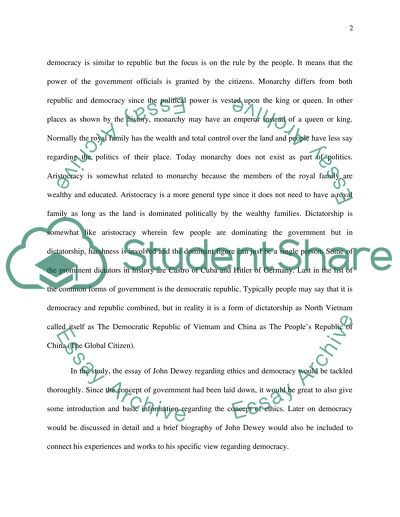Cite this document
(“The Ethics of Democracy by John Dewey Essay Example | Topics and Well Written Essays - 1500 words”, n.d.)
Retrieved from https://studentshare.org/philosophy/1437288-the-ethics-of-democracy-by-john-dewey
Retrieved from https://studentshare.org/philosophy/1437288-the-ethics-of-democracy-by-john-dewey
(The Ethics of Democracy by John Dewey Essay Example | Topics and Well Written Essays - 1500 Words)
https://studentshare.org/philosophy/1437288-the-ethics-of-democracy-by-john-dewey.
https://studentshare.org/philosophy/1437288-the-ethics-of-democracy-by-john-dewey.
“The Ethics of Democracy by John Dewey Essay Example | Topics and Well Written Essays - 1500 Words”, n.d. https://studentshare.org/philosophy/1437288-the-ethics-of-democracy-by-john-dewey.


